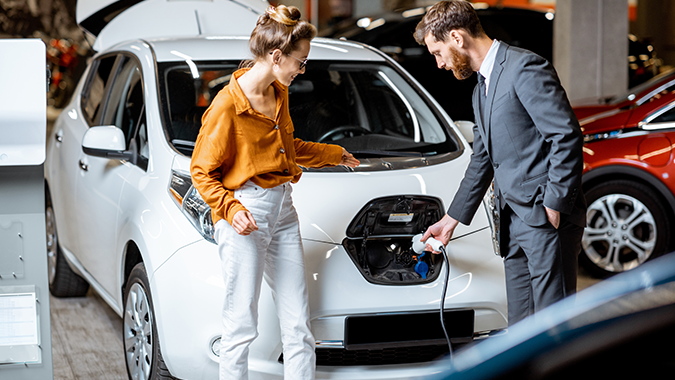The state Department of Environmental Protection has scheduled the first in a series of public hearings next month on Gov. Phil Murphy’s climate policy changes, including a directive that all new cars, pickup trucks and SUVs sold in New Jersey be zero-emission vehicles by the year 2035.
DEP will launch its public engagement process with a virtual meeting on Tuesday, March 7 at 11 a.m. Additional stakeholder sessions on the proposed Phase 2 Climate Pollutant Reduction (CPR) initiatives are planned throughout the spring and summer. DEP said details about these meetings, including registration links, would be posted soon on its website at https://dep.nj.gov/njpact/.
Through CPR Phase II, the state will further reduce emissions of greenhouse gases and other climate pollutants that fuel climate change and adversely affect air quality and public health. DEP said these initiatives include the potential adoption of the Advanced Clean Cars II (ACC II) regulation adopted by the California Air Resources Board in 2022.
On Wednesday, Murphy laid out a six-point plan that he said would help combat the effects of climate change. The biggest component of that plan is targeting 100% clean energy by 2035, which is 15 years sooner than the goal he initially set in his first term of office.
In a statement after the governor’s announcement, NJBIA questioned the feasibility of the plan and objected to the state mandating a sweeping energy transition in such a short period of time without first determining how much it will cost New Jersey residents and businesses.
The six elements of the governor’s climate change plan are:
- An executive order setting the new target of 100% clean energy by 2035, meaning all electricity sold in New Jersey must be derived from clean renewable energy sources.
- An executive order setting a target date of 2030 to install all zero-carbon-emission space heating and cooling systems in 400,000 homes and 20,000 commercial properties, and to make 10% of all low-to-moderate income properties electrification-ready.
- Directing the state Board of Public Utilities to work with the state’s utilities, labor unions and other organizations to plan for the future of natural gas in New Jersey.
- Dedicating $70 million in Regional Greenhouse Gas Initiative (RGGI) auction proceeds toward lowering upfront costs of purchasing medium- and heavy-duty electric vehicles.
- Require all new cars and light-duty truck sales in New Jersey to be zero-emission vehicles by 2035.
- Proposing the NJ PACT REAL rules, anticipated this summer, to provide enhanced flood protection for homeowners, businesses, and infrastructure against increased flooding.




